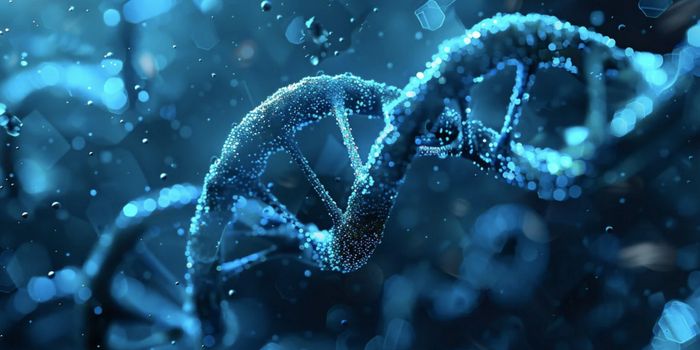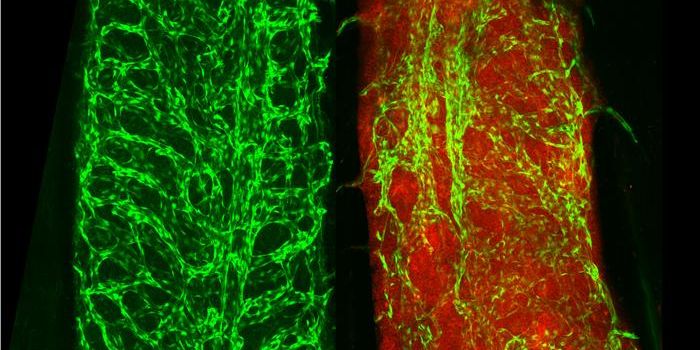DNA Enhancer Elements Promote Colorectal Cancer
Colon and rectal cancer rate are on the rise, especially in the young. Scientists don't know what lies behind the increase, but knowing more about colorectal cancer will help improve therapeutics for the disease. New work from researchers at Case Western Reserve University has implicated a genetic feature called enhancers in the promotion of colon cancer formation. Alterations in very specific parts of the genome can actually promote the expression of genes that encourage tumor growth. These alterations, which happen outside of genes related to colorectal cancer, are very consistently observed in tumor samples; that consistency opens a window for drug development.
The genome is replete with small bits of DNA that can regulate gene expression. One such piece, called an enhancer element, can interact with various regions of the genome, some of which are physically very far away, when genetic material is compacted and folded in three dimensions. This new work indicates that on the chromosomes that contain colorectal cancer genes, there are high levels of enhancer elements that can turn on the expression of certain genes. The video above is a lecture from the NIH regarding enhancers.
"Our data suggest that the survival of colon cancer cells often depends on the expression of genes associated with common enhancer changes," explained the senior author of the work, Peter Scacheri, PhD, an Associate Professor of Genetics and GenomeSciences at Case Western Reserve University School of Medicine. Scacheri said that these common alterations in enhancers are in alignment with specific DNA sequences that are known to elevate colorectal cancer risk.
The scientists found that thousands of enhancer elements were unexpectedly changed in colorectal cancer samples. After tinkering with the enhancer elements, that investigators observed that the previously active colorectal cancer genes became inactive. The researchers thus suggest that the manipulating enhancer elements might be a way to silence the colorectal cancer genes and hopefully slow the growth of tumors.
The research team aimed to analyze a diverse set of colorectal cancer samples in order to elucidate the role of these enhancer alterations. While the work recognizes the influence of previously identified, causative genetic mutations, it also shows that there are other areas of the genome involved in colorectal cancer development. It is postulated that the enhancer elements work in conjunction with genetic mutations in the growth of colorectal tumors.
"Enhancer elements are distinguishable by specific chemical tags on DNA, like bulbs on a string of lights," Scacheri explained. "Identifying common enhancer changes helps us pinpoint a specific set of genes that are consistently switched on during transformation of normal cells to cancer cells. These genes define the tumor state, and therefore could be just as important to tumor growth as those that are commonly mutated."
The Centers for Disease Control and Prevention identifies colorectal cancer causes as the second leading cause of cancer-related death in the United States. These findings indicate that these enhancer elements might be prime therapeutic targets to combat the cancer. "Our next step is to determine exactly how the common enhancers form in colon cancer, and whether we can target their destruction as a strategy to kill tumor cells without harming normal cells," concluded Scacheri.
The above video from Mayo Clinic discusses how colonoscopies can help prevent colorectal cancer.
Sources: AAAS/Eurekalert! via Case Western Reserve University, Nature Communications








